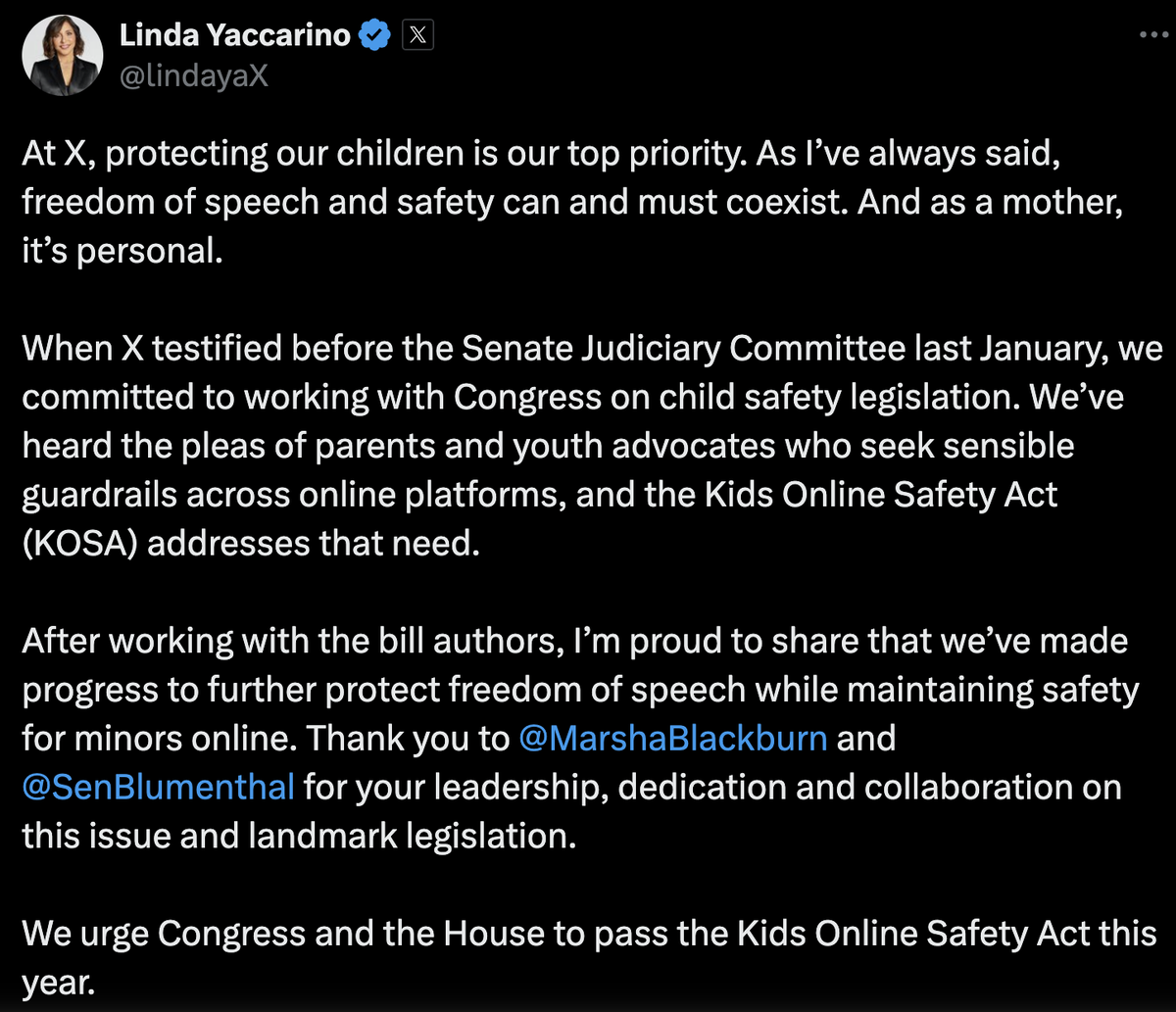Senate lawmakers who are pressing for a House vote on the Kids Online Safety Act have unveiled a new version of the controversial bill, which was revised with input from X Corp. owner Elon
Musk.
The measure, which would impose sweeping restrictions on social media companies' ability to serve content to minors, was approved by the Senate this summer, but has stalled in the
House.
The revisions, introduced Saturday, are aimed at assuaging concerns that the bill could enable government officials to effectively censor speech on social media. But critics of the bill
say those concerns persist despite the revisions.
The Kids Online Safety Act aims to tackle some specific potential harms associated with minors' social media use -- including depression,
eating disorders, and online bullying. The measure would require tech platforms to use “reasonable care” to avoid causing those harms via design features such as personalized
recommendations, notifications and appearance-altering filters. The measure tasks the Federal Trade Commission with issuing guidance to platforms regarding online safety.
advertisement
advertisement
While some youth
advocates support the measure, opponents -- including civil liberties groups and tech industry organizations -- say the bill would empower government officials to effectively censor content they deem
inappropriate for teens.
The new language includes a provision that explicitly prevents government officials from attempting to enforce the bill in ways that would violate the First
Amendment.
Bill sponsors Senators Marsha Blackburn (R-Tennessee) and Richard Blumenthal (D-Connecticut) stated Saturday that the new language “should eliminate once and for all the false
narrative that this bill would be weaponized by unelected bureaucrats to censor Americans.”
X CEO Linda Yaccarino praised
the newly revised bill on Saturday.
“After working with the bill authors, I’m proud to share that we’ve made progress to further protect freedom of speech while maintaining
safety for minors online,” she stated in a post on X.
But opponents say their central concerns with the proposed law remain the
same.
“It still regulates protected American speech online and empowers bureaucrats to censor speech on platforms,” Amy Bos, director of state and federal affairs at the
tech industry funded group NetChoice stated.
She added that even with the new language, “bureaucrats will be in charge of determining which 'harms' platforms must restrict through an
Orwellian digital speech council.”
Interactive Advertising Bureau executive vice president Lartease Tiffith separately stated this summer that the organization “is particularly
worried about provisions that may limit free speech, effectively placing government oversight on platform content decisions.”
Some states have recently passed their own versions of
online safety bills, but it's not clear those efforts will survive constitutional challenges.
In California, for instance, judges have temporarily blocked portions of a law that would have
required online companies likely to be accessed by users under 18 to evaluate whether the design of their services could expose minors to “potentially harmful” content, and to mitigate
that potential harm.
